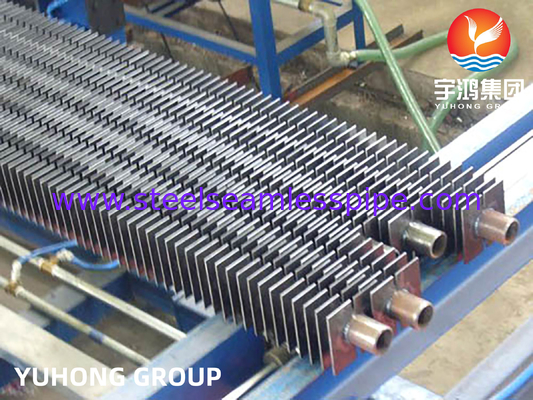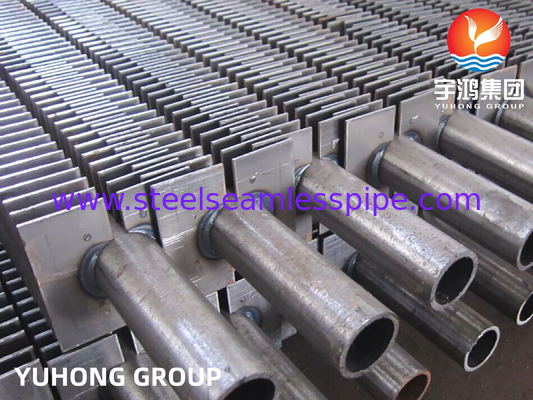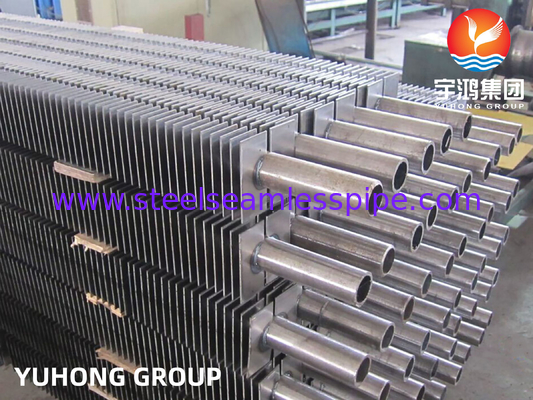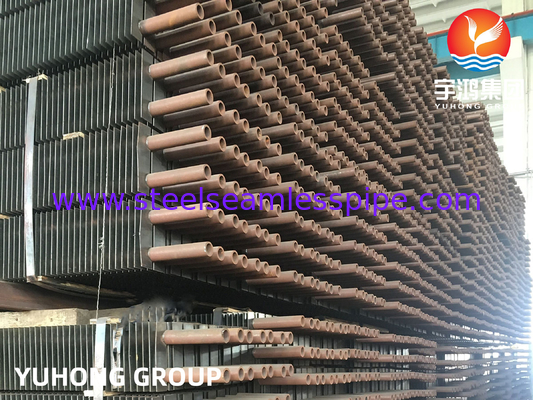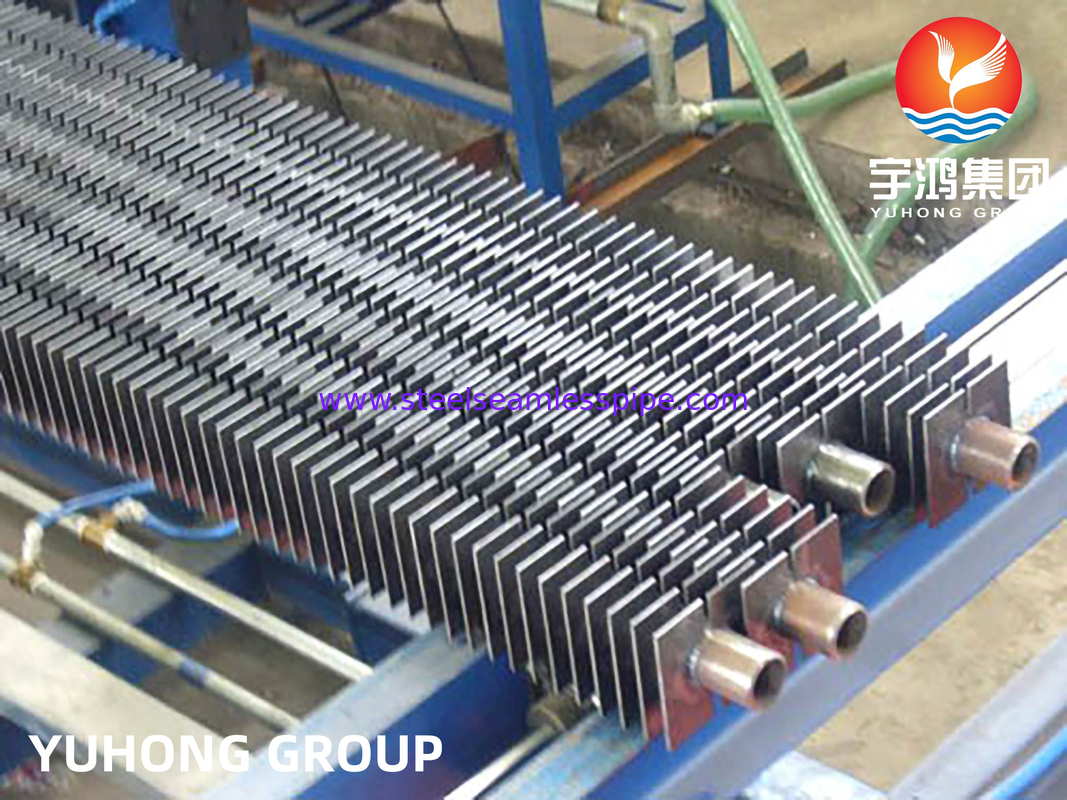Rectangular Finned Tube
Rectangular Finned Tube is a tubular structure that enhances heat transfer efficiency by adding rectangular fins on the outer surface. It is widely used in the field of heat exchange. The following are its key features, applications and design points:
1. Basic structure and characteristics
Base Tube
Usually a metal tube (such as copper, aluminum, stainless steel), the shape can be round tube, flat tube or rectangular tube.
Fins
Rectangular thin sheets welded, extruded or wound on the outer wall of the tube to increase the heat dissipation surface area (up to 5-20 times the base tube area).
Geometric features
Fin shape: rectangular, straight or segmented arrangement.
Fin spacing: optimized design according to the properties of the fluid (such as air, flue gas) to avoid dust accumulation or blockage.
Fin height: affects heat transfer efficiency and pressure drop (usually 5-30mm).
2. Core advantages
Efficient heat transfer: fins greatly expand the heat transfer area, especially suitable for gas-liquid heat exchange (such as air coolers).
Compact structure: achieve high heat exchange efficiency in a limited space and reduce the size of the equipment.
Anti-fouling ability: The rectangular fins have a larger gap and are easier to clean than spiral fins (suitable for dusty and high-viscosity fluids).
Flexible customization: Fin parameters (height, thickness, spacing) can be adjusted according to working conditions.
3. Manufacturing process
Extrusion molding: The aluminum tube and fins are extruded as one, with high strength and low contact thermal resistance (commonly used in air conditioning condensers).
Welding/brazing: The fins and base tubes are connected by high-frequency welding or laser welding (suitable for stainless steel and copper materials).
Wrapping: The metal strip is spirally wound and welded to the base tube (low cost, but poor temperature resistance).
4. Typical application scenarios
Heating, ventilation and air conditioning (HVAC)
Air-refrigerant heat exchange in air conditioning condensers, evaporators, and fresh air units.
Industrial waste heat recovery
Boiler flue gas waste heat recovery, chemical reactor cooling.
Power and energy
Gas turbine inlet cooling, power plant air cooling island.
Transportation
New energy vehicle battery cooling system, locomotive radiator.
5. Design considerations and selection
Fluid properties
Gas side: large fin area (low thermal conductivity) is required, such as air cooler.
Liquid side: low fin demand, focus on optimizing the flow rate in the tube (such as water pipe heat exchange).
Pressure drop control: Too dense fins will increase airflow resistance, and efficiency and energy consumption need to be balanced.
Material selection
Corrosion resistance: Copper-nickel alloy and titanium tubes are often used in marine environments.
High temperature environment: stainless steel or aluminized steel.
Cleanliness and maintenance: Dusty environments (such as boilers) require increased fin spacing or a detachable structure.
| Type |
Description |
Base tube |
Fin specification (mm) |
| O.D. (mm) |
Fin pitch |
Fin height |
Fin thick |
| Embedded |
G-type fin tube |
16-63 |
2.1-5 |
<17 |
~0.4 |
| Extruded |
Single metal combined metal |
8-51 |
1.6-10 |
<17 |
0.2-0.4 |
| Low fin tube t-type fin tube |
10-38 |
0.6-2 |
<1.6 |
~0.3 |
| Bamboo tube corrugated tube |
16-51 |
8-30 |
<2.5 |
/ |
| Wound |
l/kl/ll type fin tube |
16-63 |
2.1-5 |
<17 |
~0.4 |
| String |
String fin tube |
25-38 |
2.1-3.5 |
<20 |
0.2-0.5 |
| U-type |
U-type tube |
16-38 |
/ |
/ |
/ |
| Welding |
HF-welding fin tube |
16-219 |
3-25 |
5-30 |
0.8-3 |
| H/HH type fin tube |
25-63 |
8-30 |
<200 |
1.5-3.5 |
| Studed fin tube |
25-219 |
8-30 |
5-35 |
φ5-20 |
Inspection and Tests Performed
Chemical Composition inspection,
Mechanical Properties Test(Tensile Strength, Yield Strength, Elongation, Flaring, Flattening, Hardness, Impact Test),
Surface and Dimension Test,
No-destructive Test,


 Your message must be between 20-3,000 characters!
Your message must be between 20-3,000 characters! Please check your E-mail!
Please check your E-mail!  Your message must be between 20-3,000 characters!
Your message must be between 20-3,000 characters! Please check your E-mail!
Please check your E-mail! 
